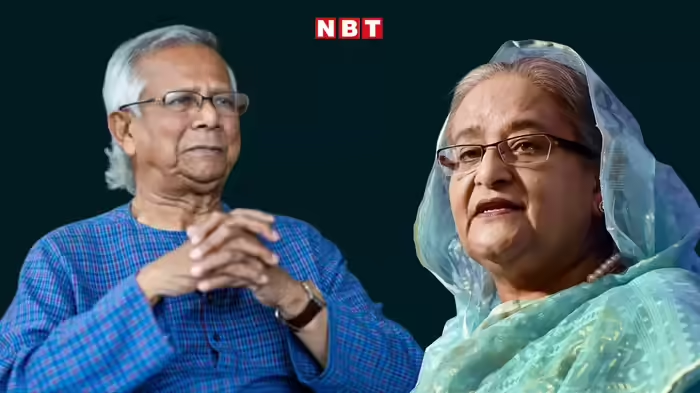
****
Dhaka: A massive constitutional storm has hit Bangladesh after shocking revelations emerged regarding the death sentence handed to former Prime Minister Sheikh Hasina. According to legal experts and eyewitness accounts, the verdict delivered by the International Crimes Tribunal–Bangladesh (ICT-B) was not only politically motivated but also obtained through force, intimidation, and unconstitutional actions.
Reports indicate that Mohammad Yunus’s regime orchestrated a complete breakdown of judicial procedures to ensure Hasina’s conviction, raising global concerns about the collapse of democratic institutions in Bangladesh.
Experts Claim the Tribunal Had No Legal Authority
A prominent Bangladeshi constitutional expert revealed that the President had no legal power to issue the ordinance (under Article 93) that enabled amendments to the ICT Act. Parliament was dissolved improperly, making the ordinance itself invalid.
The ICT-B, originally formed under the International Crimes (Tribunals) Act of 1973 to try genocide-related cases from the 1971 Liberation War, was therefore acting far beyond its scope by conducting a trial against Hasina.
Hasina Labels Verdict ‘Politically Driven and Biased’
Sheikh Hasina, who is currently safe in India, condemned the ruling, calling it a “politically engineered decision.”
Sources claim that even before the verdict, the outcome had been dictated, and the tribunal was pressured to deliver a death sentence.
Had she been in Bangladesh, many believe the Yunus-led regime would have already carried out the execution.
Judges Threatened, Forced to Resign; New Judges Appointed Illegally
One of the most alarming findings relates to how the tribunal’s judges were appointed.
On 10 August 2024, the Chief Justice of the Appellate Division and five senior judges were surrounded by student mobs, given an “ultimatum,” and physically forced to resign.
Legal experts say the appointment of the current three ICT-B judges violates the Constitution:
- Ghulam Murtuza Majumdar, a retired district judge, was promoted to High Court judge just six days before ICT began its investigation.
- Mohitul Haque Mohammad Inam Chowdhury, another retired district and sessions judge, had no experience in international criminal law.
- Shafiul Alam Mahmood, a lawyer with reported links to the BNP, was also rushed into the High Court and then into ICT—raising major concerns about political bias.
Within a single year, 22 judges allegedly aligned with Jamaat-e-Islami were made permanent, solidifying the influence of radical elements within the judiciary.
Prosecution Also Under Question
The appointment of Mohammad Tajul Islam as the chief prosecutor has raised further concerns.
He previously represented convicted war criminals linked to Jamaat-e-Islami and is widely believed to have been chosen to carry out political vendettas under the guise of legal proceedings.
A Verdict Written Under Fear and Force
According to insiders familiar with ICT-B, the tribunal never had the legal standing to try Sheikh Hasina.
Several constitutional flaws, forced judicial reshuffles, and politically biased appointments paint a grim picture of justice in Bangladesh.
The developments have triggered outrage among international legal bodies, raising urgent questions about judicial independence, political stability, and the future of democracy in Bangladesh.
Discover more from SD NEWS agency
Subscribe to get the latest posts sent to your email.
